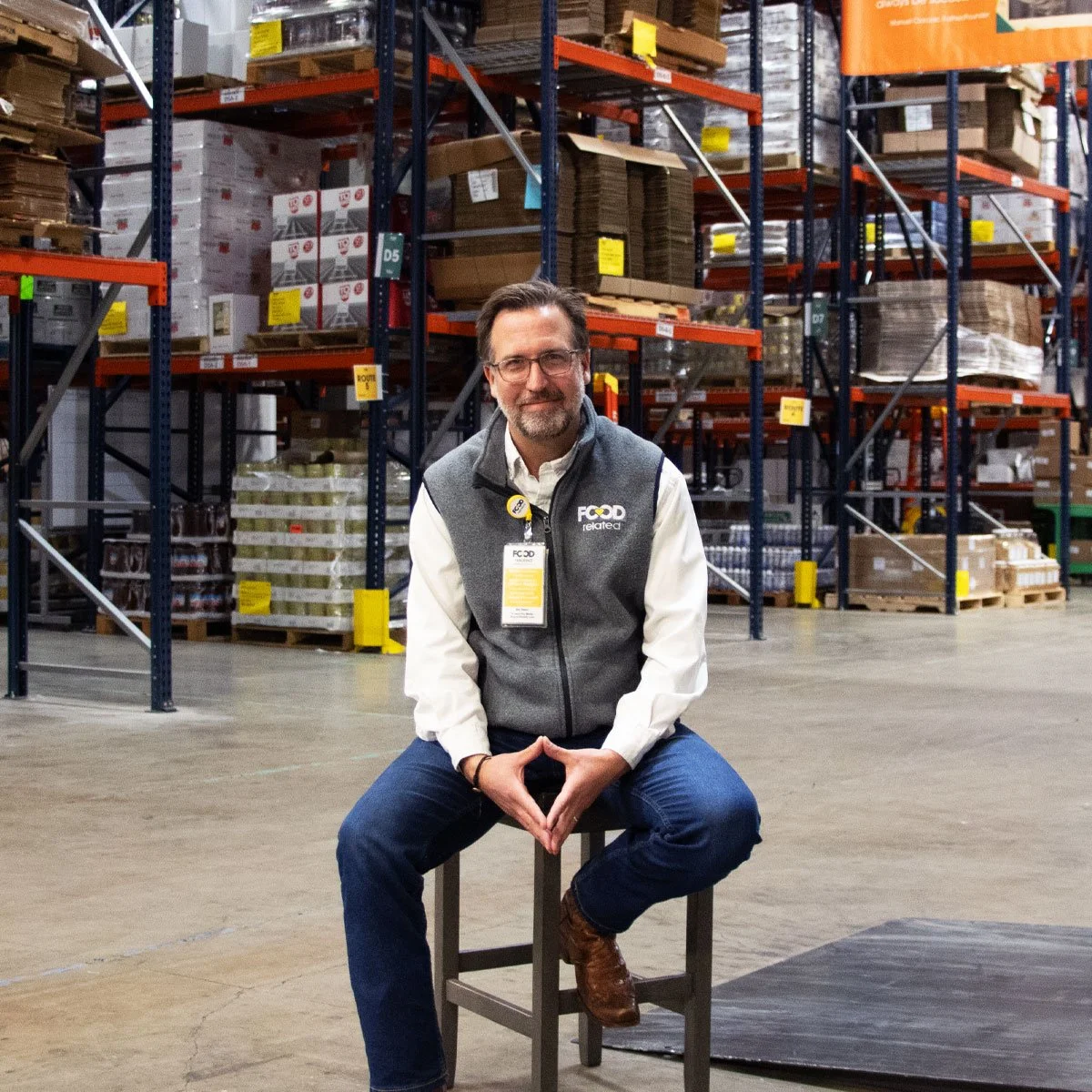
A fresh future for Central Texas starts here.
The Central Texas Food Bank (CTFB) works across a 21-county region to increase neighbors’ access to nutritious food through direct services and partnerships with nearly 250 community organizations. Each year, CTFB reaches an estimated 610,000 neighbors across Central Texas. Our 21-county service area spans Bastrop, Bell, Blanco, Burnet, Caldwell, Coryell, Falls, Fayette, Freestone, Gillespie, Hays, Lampasas, Lee, Limestone, Llano, McLennan, Milam, Mills, San Saba, Travis, and Williamson counties. Learn more about our programs and services at www.centraltexasfoodbank.org.
While immediate food assistance can be an important resource for neighbors in the short term, it is essential to examine food production, distribution, affordability, and retail access at a regional scale to imagine a food system that supports reliable access to nutritious foods, stable supply chains, and long-term viability for local producers, retailers, and consumers across the 21-county region. Limited local production, processing, and distribution—combined with constraints on affordability and retail access—are associated with uneven food access across the region and increased reliance on charitable food services, such as food pantries.
The time to reimagine our food system is now.
The Central Texas Food System Initiative
Through a shared measurement system, the Central Texas Food System Initiative aims to monitor key food-system indicators and support collaborative efforts across public, private, and nonprofit sectors. We started this work in 2022 and are currently collaborating with local leaders in Bastrop, Bell, Burnet, Hays, McLennan, Travis, and Williamson counties, with plans to expand our engagement throughout our 21-county service area.
-
With the goal of providing insights into our regional food system, the Central Texas Food System Dashboard is one element of the Central Texas Food System Initiative. It houses key food system indicators, organized by food system sector, to provide a snapshot of the current state of the Central Texas regional food system and allow for collective monitoring and evaluation of food system planning and initiatives. Community leaders, community members, and organizations wanting to engage in food system work will also find a wealth of resources to deepen their knowledge of food systems.
-
Centered on collaboration across the region’s food system, the Central Texas Food System Initiative aims to engage neighbors affected by food access challenges and the people and organizations who produce, prepare, distribute, serve, and consume food.
From 2022 to 2024, a Dashboard Advisory Group helped identify regional priorities and metrics, outline data goals and strategies, and bring key stakeholders together.
In 2025, this work expanded with the creation of the Central Texas Regional Food System Council, a multi-county, cross-sector group with partners across the public, private, nonprofit, and philanthropic sectors to inform shared priorities and actions focused on strengthening the regional food system.
-
Neighbor and community partner input helps guide priorities across the regional food system. Through Food Access Community Needs Assessments (CNAs), we collect survey and interview data, hold community conversations, and learn directly from neighbors about food access challenges in their area. These assessments also bring together partners from multiple sectors to review findings. We are continuing to identify effective ways for community members to contribute to working groups within the Regional Food System Council.
-
The Central Texas Food System Initiative brings together local food system research to help identify data gaps and inform regional planning. CTFB works with university and community partners to develop studies that improve understanding of food production, distribution, affordability, and access across the 21-county region.
The Data and Research Advisory Group, composed of subject-matter experts, supports this work by reviewing available data, advising on research methods, and helping ensure that analyses align with the needs of the Regional Food System Council.

Food System Data and Research Advisory Group
The Food System Data and Research Advisory Group provides high-quality, actionable research and data analysis to inform evidence-based planning, policy, and program decisions across the region, supporting the Central Texas Regional Food System Council, Local Coalition Collaborative workgroup, and CTFB’s strategic priorities.
Dr. Kathryn Janda-Thomte
Baylor University
Assistant Professor, Department of Public Health
Dr. Shalene Jha
University of Texas at Austin
Professor, Department of Integrative Biology
Dr. Emiliano López Barrera
Texas A&M University
Assistant Professor, Department of Agricultural Economics
Dr. Natalie Poulos
University of Texas at Austin
Assistant Professor, Department of Nutrition Sciences
Dr. Sandra van den Berg
University of Texas Health Science Center at Houston (Austin)
Professor, Health Promotion & Behavioral Sciences

Timeline: Central Texas Food System Initiative
2018
The Central Texas Food System Initiative was born out of a local effort to develop a regional food system planning process. Although a regional planning effort did not come to fruition at that time, the efforts resulted in a recommendation to compile and centralize food system data to identify gaps and to inform the food planning process.
2021
Austin Climate Action and Resilience (formerly the City of Austin Office of Sustainability) contracted New Venture Advisors (NVA) to develop a Metrics Report and Action Plan.
2022
After the initial release of NVA’s report, Austin Climate Action and Resilience held a Data Aggregation Summit in May to convene key stakeholders and discuss the project work plan. Although the project concept was well-received, next steps for the project remained uncertain, including who would take on project leadership.
In October, CTFB assumed leadership as the backbone organization for the Central Texas Food System Initiative with the financial support of Austin Climate Action and Resilience. The initial focus of the Initiative was on data aggregation.
2023
In April, CTFB carried forward the work of the Central Texas Foodshed Collaborative by forming a regional Dashboard Advisory Group and building a website that houses key food system data and metrics.
At that time, this work began to be phased into setting regional food system priorities and goals, developing a shared measurement system and targets for these goals, and convening cross-sector workgroups to address these priorities.
2024
In October, the Dashboard was updated to include data from all 21 counties in Central Texas.
The first iteration of the Dashboard Advisory Group met for the final time in October as we shifted to focusing on the development of a Central Texas Regional Food System Council, which involves many of the same organizations represented on the initial Dashboard Advisory Group. We thank all of its members for their passion, knowledge, and hard work to reclaim health, sustainability, and fairness through food. This dashboard would not have been possible without their support (listed in the order in which they appear below): Dr. Tracy Ayrhart, Vice President of Research + Strategic Partnerships, Central Texas Food Bank; Simone Benz, Policy and Advocacy Director, Sustainable Food Center; Mia Burger, Research Manager, Central Texas Food Bank; Matthew Gonzales, Executive Director, Hays County Health Department; Dr. Laura Gougeon, Director of Research, Central Texas Food Bank; Dorothy Light, Community Health Connect Director, United Way for Greater Austin; Emily McCabe, Community Outreach Specialist, Hays County Health Department; Edwin Marty, Food Policy Manager, City of Austin, Austin Climate Action and Resilience; Jackie May, CHW, Bastrop County Cares; Zeke Morgan, Director of Health Initiatives, Prosper Waco; Dr. Natalie Poulos, Assistant Professor, The University of Texas at Austin; Dr. Jeremy Rhodes, Senior Director of Data & Research, Prosper Waco; Nicole Thompson, Senior Grants Manager, Sustainable Food Center; Krissy Voutas, AmeriCorps VISTA, Bastrop County Cares; Bill Wilson, Policy and Planning Manager, Travis County Planning & Budget Office; and Valerie Zapien, Healthy Williamson County Coalition Coordinator.
2025
In January, a Council Development Group composed of members from the former Dashboard Advisory Group and additional participants began meeting to develop the foundation for the Regional Food System Council, including its vision, mission, structure, membership, and decision-making process.
From June to September, food system experts were invited to join the Data and Research Advisory Group.
In October, after a nomination and selection process, the Regional Food System Council Steering Committee convened for the first time, marking the start of the Council’s next phase.




























